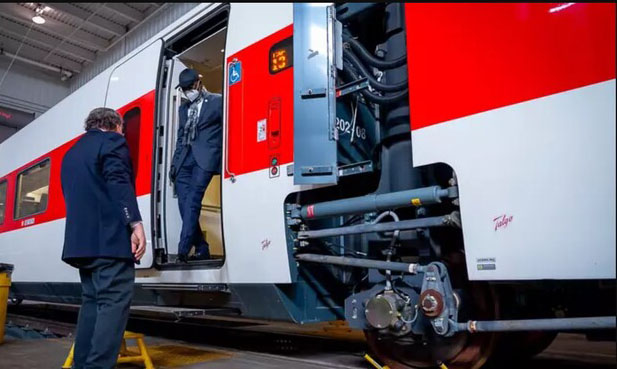Nigeria is grappling with a severe fuel crisis as the landing cost of Premium Motor Spirit (PMS), commonly known as petrol, has skyrocketed to N978 per litre.
This surge, driven by a depreciating naira and rising international costs, has led to widespread fuel shortages and long queues at filling stations across the country.
The latest figures reveal that the landing cost—which includes the international price, shipping, insurance, and other charges—has increased from N720 per litre in October 2023.
This escalation is attributed to the naira’s depreciation, which hit a three-month low of N1,530 per dollar on the parallel market this week, exacerbating the already dire economic situation.
“The rising landing cost of petrol is a result of the escalating foreign exchange (FX) crisis. There are market interventions through subsidies, as most Nigerians cannot afford the market price for petrol,” a senior executive in the downstream sector explained.
Despite the federal government’s denial of an ongoing subsidy, a report from the finance minister, Wale Edun, projected that fuel subsidies could cost about N5.4 trillion in 2024, up from N3.6 trillion in 2023.
The fuel scarcity has led to black market prices soaring between N1,000 and N1,100 per litre, while some retail outlets in Abuja, Nasarawa, and Niger have hiked pump prices to N900 per litre.
Motorists have been forced to spend hours in queues, further straining their daily lives.
NNPC Limited attributed the current fuel queues to recent thunderstorms and logistical challenges disrupting activities at fuel-loading jetties.
The company assured stakeholders that it is working to resolve the situation and clear the queues.
“We have no problem covering our gasoline payments. This is just money for normal business and not a desperate act,” said Mele Kyari, the group’s general manager.
He also mentioned that NNPC is considering securing a $2 billion loan using crude oil pre-payments as collateral to support its business activities.
Aisha Mohammed, an energy analyst at the Lagos-based Centre for Development Studies, noted, “The government is partially subsidizing the commodity for political, social, and economic reasons. While economically sound, the social and political costs are significant.”
Market analysts have called for a review of dollar-based fee collections to reduce petrol costs. “We must resist the dollarization of the Nigerian economy. There are some fee collections in dollars that are also pushing up the landing cost of petrol,” a source said.
The Petroleum Products Retail Outlets Owners Association of Nigeria (PETROAN) confirmed that NNPC is addressing the supply issues, but warned that the queues might persist for days, especially in locations far from major depots.
“Once they start loading, it takes some days to clear the queues. And don’t forget that filling stations in Abuja get products from Lagos, Oghara, Warri, Port Harcourt, or Calabar, and that takes more than three days turn-around time to accomplish,” said PETROAN president Billy Gillis-Harry.
He said there is a need for collaboration between the government, NNPC, and downstream operators to find a lasting solution to the fuel scarcity.
“We need a clearly defined council with grassroots knowledge of the business to project and address problems based on empirical evidence,” he stated.

 Naira4 weeks ago
Naira4 weeks ago
 News3 weeks ago
News3 weeks ago
 Education4 weeks ago
Education4 weeks ago
 Social Media4 weeks ago
Social Media4 weeks ago
 Technology4 weeks ago
Technology4 weeks ago
 Investment4 weeks ago
Investment4 weeks ago
 Dividends4 weeks ago
Dividends4 weeks ago
 Economy4 weeks ago
Economy4 weeks ago
























